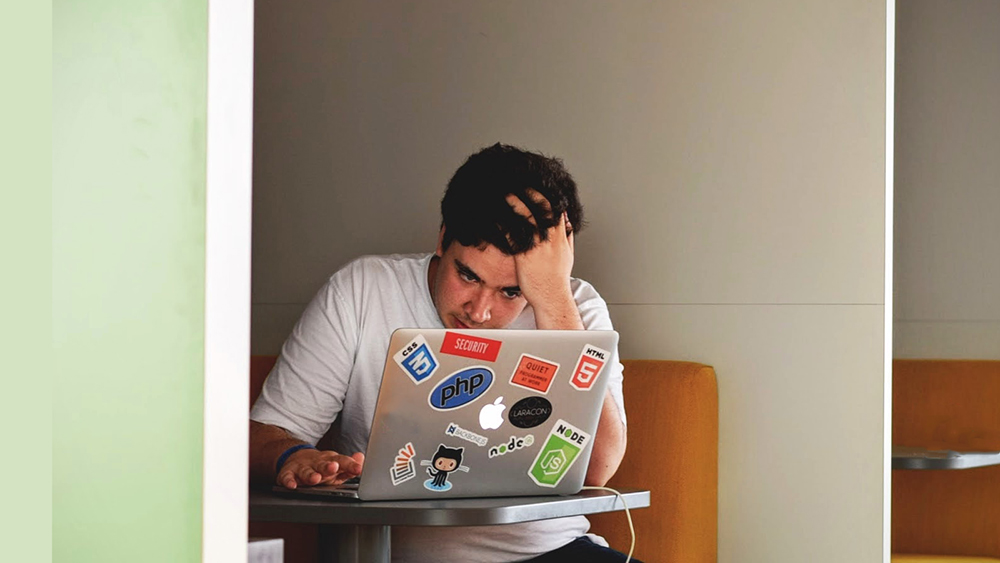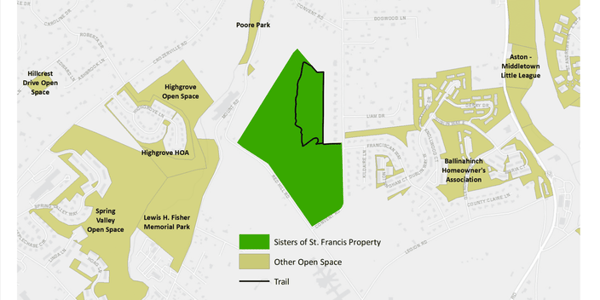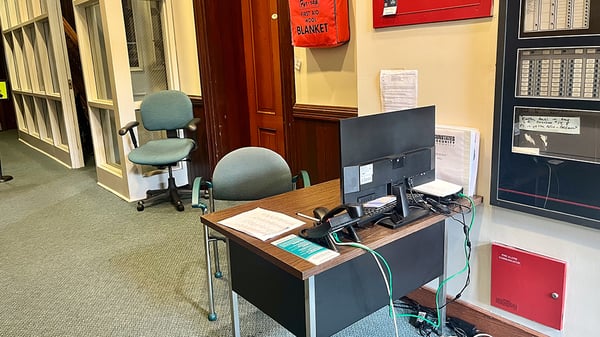As wars are still occurring in Israel and Palestine, Neumann University will be bringing a...
Spring Semester Wi-Fi Woes Cause Frustration

In today's fast-paced digital world, access to the internet has become a fundamental requirement for any school. Schools must have fast and reliable internet connectivity to meet the needs of their students in light of the growing number of online learning platforms and resources. Poor Wi-Fi can lead to frustration and lost productivity among both students and professors.
On Neumann’s campus, there have been consistency issues with the school Wi-Fi this spring semester. Students have expressed their discomfort with the network since being back from winter break. Many students say that their Wi-Fi cuts on and off regularly, and it usually seems to be at the worst times. Sophomore Danielle Tilghman said she must use the school computer at times because the Wi-Fi was not efficient on her laptop in her dorm.
Help desk technician Dennis Elko said that there was an update during the winter break that led to a degradation in the network when students started returning in January. Elko emphasized that improving the Wi-Fi is a work in progress. He says that it is an issue that the IT team are frequently working on as there is no definite solution to this complex problem.
There was an incident in this reporter’s class earlier this spring where the exam was an online lockdown browser and the Wi-Fi cut out for many students during the exam, leaving some students with white screens saying the browser was not responding. This Wi-Fi failure ultimately forced students to rewrite their answers on paper instead of submitting the answers online, causing the exam to take a little longer than expected due to connectivity issues.
Luckily, this system failure was during class. How different would things be if a student's Wi-Fi went out during an exam outside of class. Would professors be understanding of the situation?
Criminal Justice professor Leanne Havis says that she’s never dealt with test-taking connection issues but strongly recommends that students use a wired connection in her reminders before her exams to limit the possibility of issues occurring. She mentioned having issues with the Wi-Fi at least once a week since the start of the spring semester and described the lack of dependability as frustrating.
Havis added, “I know our ITR staff are always working to address these issues and that they’re probably just as frustrated as we are, if not more so. We should treat them with understanding and respect.”
Network specialist Kushan Fonseka explained that there are over 2,200 people connected to the wireless network which could also cause stress on the systems. He also noted that there is constant monitoring with firewalls to protect the network data from over 10,000 online threats per day.
Fonseka stated that “the wireless network's default behavior is to shut down when it is being flooded with possible threats.” This is another factor for some of the Wi-Fi inconsistencies this semester.
Chief Information Officer Richard Hartwell says that there are many variants to these Wi-Fi issues and that their goal is to be careful not to replicate these issues in the future when trying to fix the problems. Hartwell emphasizes that classroom Wi-Fi issues are a level one priority as they affect student learning and that ITR staff are always working on solutions to limit these problems.
An important element in solving these Wi-Fi problems is to know when the problems are occurring. Hartwell explained that there are 500 tickets put in monthly on wireless network issues but there should be more based on how frequently students and staff talk about their problems with the Wi-Fi. He believes that, often, because people on campus have connectivity issues for a short period of time, they tend not to send a ticket about lack of Wi-Fi service.
Hartwell and Fonseka both emphasized that students and staff should always send a ticket when they’re having internet problems. These reports let them know what needs to be fixed and how quickly, depending on the level of priority and whether the issue is affecting student education.





